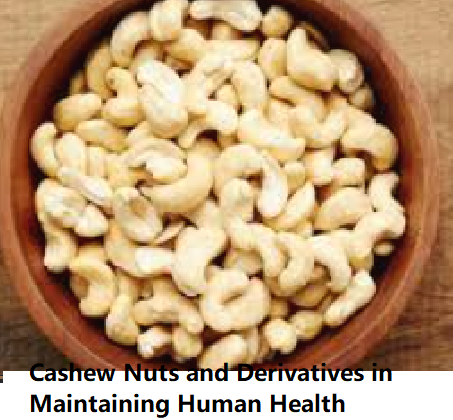
The Essential Role of Cashew Nuts and Derivatives in Maintaining Human Health
In the realm of nutrition, certain foods stand out not only for their delicious taste but also for their profound impact on human health. Among these nutritional powerhouses, cashew nuts and their derivatives hold a special place. Beyond their crunchy texture and delightful flavor, cashews offer a plethora of health benefits that make them an indispensable part of a balanced diet. Let’s delve into why cashew nuts and their derivatives are crucial for maintaining human health.
Rich Nutrient Profile
Cashew nuts are packed with essential nutrients that promote overall well-being. They are a good source of protein, healthy fats, vitamins, and minerals, including magnesium, phosphorus, copper, and zinc. These nutrients play vital roles in various bodily functions, such as metabolism, immune function, bone health, and energy production.
Heart Health Benefits
One of the most significant health benefits of cashew nuts is their positive impact on heart health. Cashews are naturally cholesterol-free and contain heart-healthy monounsaturated fats, which help lower harmful LDL cholesterol levels while increasing beneficial HDL cholesterol levels. Additionally, cashews are rich in antioxidants like vitamin E, which may help reduce inflammation and protect against heart disease.
Weight Management Support
Despite being calorie-dense, cashew nuts can be beneficial for weight management when consumed in moderation. The combination of protein, fiber, and healthy fats in cashews helps promote satiety and prevent overeating, making them a satisfying snack choice. Incorporating cashews into a balanced diet can contribute to weight loss or weight maintenance goals.
Blood Sugar Regulation
Cashew nuts have a relatively low glycemic index, meaning they cause a slower and more gradual increase in blood sugar levels compared to high-glycemic foods. This quality makes cashews a suitable option for individuals with diabetes or those looking to manage blood sugar levels. The fiber and protein content of cashews also aid in stabilizing blood sugar levels and reducing the risk of insulin resistance.
Brain Health Support
The nutrient composition of cashew nuts makes them beneficial for brain health and cognitive function. Cashews are an excellent source of magnesium, which plays a crucial role in nerve function and neurotransmitter signaling. Additionally, the antioxidants present in cashews help protect brain cells from oxidative stress and may reduce the risk of age-related cognitive decline.
Versatility in Culinary Applications
Beyond their nutritional value, cashew nuts offer versatility in culinary applications. They can be enjoyed in various forms, including whole, roasted, salted, or as a creamy nut butter. Cashew butter, in particular, serves as a nutritious alternative to traditional spreads like peanut butter and can be used in both sweet and savory recipes. Cashew milk is another popular dairy-free alternative that provides a creamy texture and nutty flavor to beverages and dishes.
In conclusion, cashew nuts and their derivatives are more than just tasty snacks—they are nutritional powerhouses that offer a wide array of health benefits. From promoting heart health and aiding in weight management to supporting brain function and blood sugar regulation, cashews play a vital role in maintaining overall well-being. Incorporating cashew nuts and their derivatives into a balanced diet can contribute to improved health outcomes and a greater sense of vitality and wellness. So, the next time you reach for a snack, consider reaching for a handful of nutrient-rich cashew nuts to nourish your body and support your health journey.
